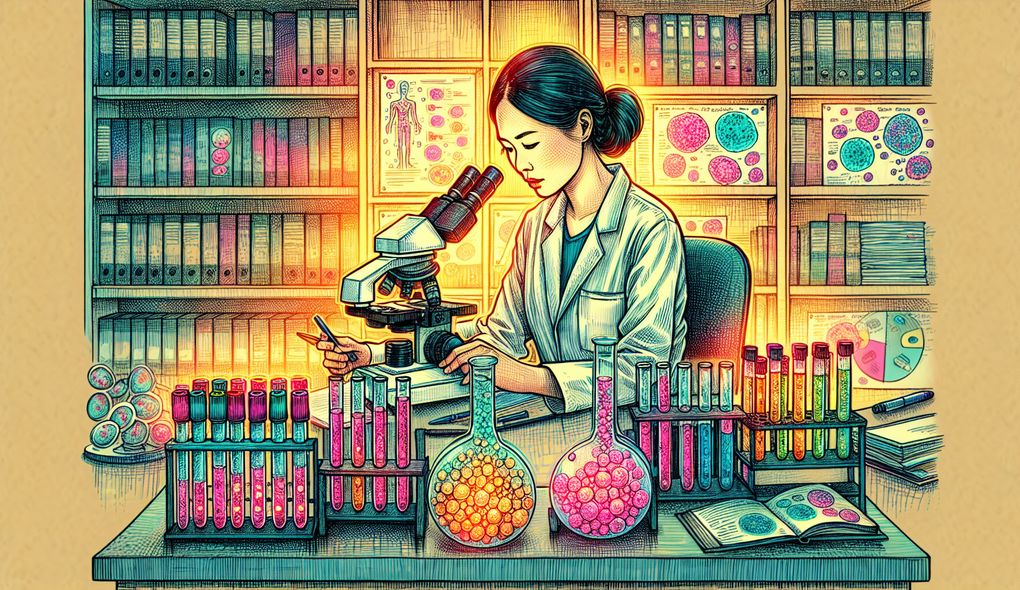Tell us about your experience collaborating with multidisciplinary teams to develop comprehensive treatment plans for patients.
SENIOR LEVEL

Sample answer to the question:
I have collaborated with multidisciplinary teams to develop comprehensive treatment plans for patients in my previous role as an oncologist. We would have regular meetings where we discussed patients' cases and shared our expertise to create treatment plans that considered all aspects of the patient's condition. I found this collaboration to be incredibly valuable as it allowed us to tap into the diverse knowledge and skills of different specialists, resulting in more holistic and effective treatment plans.
Here is a more solid answer:
In my role as a Senior Oncologist, I have extensive experience collaborating with multidisciplinary teams to develop comprehensive treatment plans for patients. One example is when we had a patient with a complex case involving both medical and surgical aspects. I worked closely with the surgeon, radiation oncologist, and other specialists to evaluate the patient's condition from different perspectives and develop a personalized treatment plan. We had regular meetings where we discussed the patient's medical history, test results, and treatment options. Each team member provided valuable input based on their expertise, and we collectively made decisions on the most suitable treatment approach. Through this collaborative process, we were able to address all aspects of the patient's condition and tailor a treatment plan to their specific needs. This resulted in improved patient outcomes and satisfaction.
Why is this a more solid answer?
The solid answer provides specific details about the candidate's role, the complexity of the cases they have worked on, and the positive outcomes of their collaboration. It demonstrates strong collaboration skills, the ability to work with different specialists, and the impact of their collaboration on patient outcomes. However, it could be further improved by providing more examples and discussing the candidate's leadership and mentoring abilities within the multidisciplinary team.
An example of a exceptional answer:
Throughout my career as a Senior Oncologist, collaborating with multidisciplinary teams to develop comprehensive treatment plans for patients has been a cornerstone of my practice. In one particularly challenging case, we had a patient with a rare form of cancer that required a combination of surgery, chemotherapy, and radiation therapy. I took the lead in assembling a team of experts, including surgeons, medical oncologists, radiation oncologists, pathologists, and radiologists. We held regular meetings to gather and analyze all available information, discussing and debating the most appropriate treatment options. I encouraged active participation and knowledge sharing among team members, ensuring that different perspectives were considered and respected. In addition to developing the treatment plan, I also took the opportunity to mentor junior team members, guiding them in the decision-making process and providing opportunities for their professional growth. Our collaborative efforts resulted in a comprehensive treatment plan that integrated the latest research findings and techniques. The patient responded well to treatment and experienced significant improvement in their condition. This experience highlighted the power of collaboration and reinforced my commitment to working with multidisciplinary teams to provide the best possible care for patients.
Why is this an exceptional answer?
The exceptional answer provides a detailed and compelling example of the candidate's experience collaborating with multidisciplinary teams. It demonstrates strong leadership and mentoring abilities, as well as the candidate's commitment to incorporating research findings and techniques into treatment plans. The example used is highly complex, highlighting the candidate's ability to handle challenging cases and achieve positive outcomes through collaboration. The answer also emphasizes the candidate's dedication to the professional growth of junior team members.
How to prepare for this question:
- Familiarize yourself with the different specialties and roles within the multidisciplinary team to better understand their perspectives and contributions.
- Reflect on past experiences where you have collaborated with multidisciplinary teams and the outcomes of those collaborations. Be prepared to discuss specific examples and highlight the positive impact of your collaboration on patient care.
- Highlight any leadership or mentoring experiences within the multidisciplinary teams you have worked with. Discuss how you have guided and supported junior team members in the collaborative process.
- Stay updated on the latest developments in oncology research and treatments, as this knowledge can enhance your contributions to the multidisciplinary team.
What are interviewers evaluating with this question?
- collaboration
- treatment planning
- multidisciplinary teams

